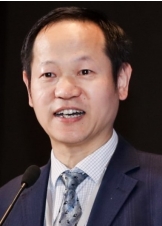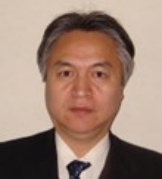
Prof. Xiao-Jun Wu
Jiangnan University, China
Xiao-Jun Wu received his B.S. degree in mathematics from Nanjing Normal University, Nanjing, PR China in 1991 and M.S. degree in 1996, and Ph.D. degree in Pattern Recognition and Intelligent System in 2002, both from Nanjing University of Science and Technology, Nanjing, PR China, respectively. He was a fellow of United Nations University, International Institute for Software Technology (UNU/IIST) from 1999 to 2000. From 1996 to 2006, he taught in the School of Electronics and Information, Jiangsu University of Science and Technology where he was an exceptionally promoted professor. He joined Jiangnan University in 2006 where he is currently a distinguished professor in the School of Artificial Intelligence and Computer Science, Jiangnan University. He won the most outstanding postgraduate award by Nanjing University of Science and Technology. He has published more than 400 papers in his fields of research. He was a visiting postdoctoral researcher in the Centre for Vision, Speech, and Signal Processing (CVSSP), University of Surrey, UK from 2003 to 2004, under the supervision of Professor Josef Kittler. His current research interests are pattern recognition, computer vision, fuzzy systems, and neural networks. He owned several domestic and international awards because of his research achievements. Currently, he is a Fellow of IAPR, AAIA, and AIIA respectively.
Speech Title: “Deep Learning Models for
Multimodal Visual Fusion” Abstract: There is a huge amount of visual
information in the construction of smart city (SC) in which the
visual fusion is a very important topic. Deep Learning (DL) has
found very successful applications in numerous different domains
with impressive results. Visual Fusion (VisF) algorithms based on
DL models and their applications will be presented in this talk in
the context of SC. Initially, a brief introductory overview of
related concepts and algorithms will be presented. Then, a
comprehensive analysis of DL models and our recent works published
on TPAMI, IJCV, TIP, CVPR, and ACMMM will be offered and their
typical applications will be discussed, including Image Quality
Enhancement, Object Tracking, Multi-Modal Image Fusion, Video
Style Transformation, and Deep Fake of Facial Images respectively.

Prof. Yen-Wei Chen
Ritsumeikan University, Japan
Yen-Wei Chen received the B.E. degree in 1985 from Kobe Univ., Kobe, Japan, the M.E. degree in 1987, and the D.E. degree in 1990, both from Osaka Univ., Osaka, Japan. He was a research fellow with the Institute for Laser Technology, Osaka, from 1991 to 1994. From Oct. 1994 to Mar. 2004, he was an associate Professor and a professor with the Department of Electrical and Electronic Engineering, Univ. of the Ryukyus, Okinawa, Japan. He is currently a professor with the college of Information Science and Engineering, Ritsumeikan University, Japan. He is the founder and the first director of Center of Advanced ICT for Medicine and Healthcare, Ritsumeikan University, Japan. His research interests include medical image analysis, computer vision and computational intelligence. He has published more than 300 research papers in a number of leading journals and leading conferences including IEEE Trans. Image Processing, IEEE Trans. Medical Imaging, CVPR, ICCV, MICCAI. He has received many distinguished awards including ICPR2012 Best Scientific Paper Award, 2014 JAMIT Best Paper Award. He is/was a leader of numerous national and industrial research projects.
Speech Title: "Knowledge-Guided Deep Learning for Enhanced Medical Image Analysis"
Abstract: Recently, Deep Learning (DL) has played an important role in various academic and industrial domains, especially in computer vision and image recognition. Although deep learning (DL) has been successfully applied to medical image analysis, achieving state-of-the-art performance, few DL applications have been successfully implemented in real clinical settings. The primary reason for this is that the specific knowledge and prior information of human anatomy possessed by doctors is not utilized or incorporated into DL applications. In this keynote address, I will present our recent advancements in knowledge-guided deep learning for enhanced medical image analysis. This will include two research topics: (1) our proposed deep atlas prior, which incorporates medical knowledge into DL models; (2) language-guided medical image segmentation, which incorporates the specific knowledge of doctors as an additional language modality into DL models.